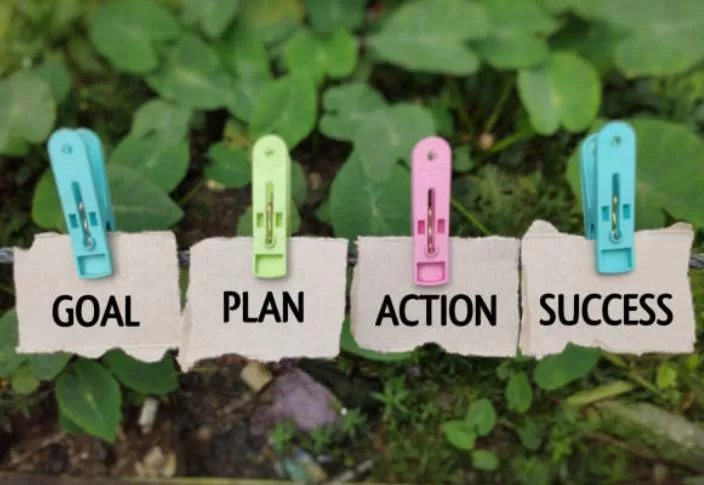How Can Positivity Improve Self-Discipline?
Learn the relationship between positivity and self-discipline and how cultivating a positive mindset can lead to improved self-control and motivation.

Selfpause Affirmation App
Download the app to get 1,000’s of affirmation meditations and everything you need to write, record and listen to your own.
Self-discipline is the ability to control one’s thoughts, emotions, and actions in order to achieve a goal or maintain a certain standard of behavior. It is a crucial component of success, whether it’s in the workplace, in personal relationships, or in achieving personal goals. One way to improve self-discipline is through cultivating a positive mindset.
Studies have shown that positive emotions, such as happiness and optimism, can increase self-discipline. When we feel good, we are more likely to engage in activities that support our goals and values, and less likely to be swayed by distractions and temptations. Positive emotions also boost our motivation, making it easier to stick to a plan or routine.

One way to cultivate a positive mindset is through the practice of gratitude. Reflecting on the things we are grateful for can shift our focus away from negative thoughts and experiences, and towards positive ones. It can also help us appreciate the good things in our lives and build stronger relationships with the people around us.
Another way to cultivate a positive mindset is through the practice of mindfulness. Mindfulness is the ability to pay attention to the present moment, without judgment. It can help us recognize and release negative thoughts and emotions as they arise, rather than getting caught up in them. It can also help us stay focused and calm in the face of stress and uncertainty, which in turn can help with self-discipline.
Positive affirmations are also a powerful tool for improving self-discipline. Affirmations are positive statements that we repeat to ourselves, in order to change our thinking patterns. They can help us overcome limiting beliefs, build confidence and self-esteem, and focus on our goals.

Another way to improve self-discipline is through setting clear and specific goals. Setting goals gives us direction and purpose, and helps us stay focused on what is important. It also helps us measure our progress, and make adjustments as needed. When setting goals, it is important to make them specific, measurable, achievable, relevant and time-bound (SMART).
In addition, it is also important to develop a plan of action. A plan of action helps us break down our goals into smaller, more manageable steps. It also helps us identify the resources and support we need to achieve our goals. By having a plan, we are more likely to stay on track, and less likely to be swayed by distractions or temptations.
Another way to improve self-discipline is through developing good time management skills. Good time management involves setting priorities, creating a schedule, and staying focused on our goals. By managing our time effectively, we can reduce distractions and procrastination, and increase our productivity. One effective way to improve time management skills is through the use of a to-do list. This helps us to plan our day and stay on track with our goals. Another way is to use a calendar, to schedule our time and deadlines for different tasks. This can help us to stay organized and prioritize our activities.

Another way to improve self-discipline is through the practice of self-control. Self-control is the ability to resist temptations, distractions and impulses in order to achieve our goals. By practicing self-control, we can learn to overcome bad habits and make better decisions. This can be achieved by setting limits and boundaries, and by learning to say no to distractions and temptations that do not align with our goals.
Positivity also can be cultivated through physical activity and movement. Regular exercise releases endorphins, which are natural mood-boosters. It also helps reduce stress and improve overall physical and mental health. Physical activity can be a great way to boost self-discipline, as it helps to develop self-control and self-motivation.

Another way to improve self-discipline is through self-reflection. This means taking the time to think about our own thoughts and emotions, and how they affect our behavior and actions. By becoming more self-aware, we can better understand our own triggers and reactions, and learn to manage them more effectively.
Finally, it is important to practice self-care. Self-discipline is closely linked to overall well-being, and taking care of our physical, mental and emotional health is crucial for improving self-discipline. This may include getting enough sleep, eating well, and engaging in regular physical activity. It also includes taking time to relax, practice self-care, and pursue hobbies that bring us joy.
In conclusion, positivity plays a vital role in improving self-discipline. By cultivating a positive mindset, practicing gratitude, mindfulness, positive affirmations, setting clear and specific goals, developing a plan of action, regular physical activity, self-reflection and self-care, we can boost our motivation, reduce distractions and temptations, and stay focused on what is important. Regularly incorporating these practices into our daily lives can help us become more self-aware, resilient, and better able to stick to our plans and routines. Furthermore, setting SMART goals and breaking them down into smaller and manageable steps, can also increase our chances of achieving them, thus improving self-discipline. Additionally, by engaging in regular physical activity and regular self-care, we can improve our overall well-being and increase our ability to maintain self-discipline.
